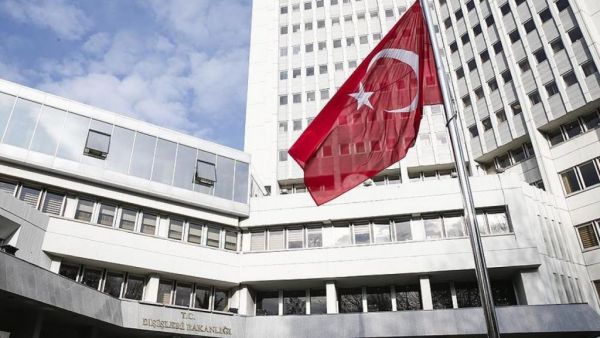With its announcement, the Turkish Foreign Minister directly threatens Greece and Cyprus with a response in the field if Nicosia starts new drilling in November. Ankara does not hide its frustration after Greece's defense agreements with the US and France, pulling the strings in the Cypriot EEZ.
In a statement, the Turkish Foreign Minister threatened Cyprus with Turkish intervention in any drilling operation, but at the same time accused Greece and Cyprus of provocative actions and, as the announcement typically states, "steps that increase tension in the Southeastern Mediterranean."
The statement issued by the Turkish Foreign Ministry through Tanzu Bilgic (representative of the ministry) states the following:
"Both Greece and the Greek Cypriot Administration (s.s. Republic of Cyprus) are taking steps that increase the tension in the Southeastern Mediterranean. Efforts to send research vessels to our continental shelf in the Mediterranean continue. We respond to these challenges both on the field and at the table and we never allow our rights to be violated. The Greek Cypriot side announced that new drilling will begin in November. "If this happens, we as Turkey will continue to provide the necessary answers to such challenges in order to protect the rights of Turkish Cypriots."
Tsavousoglou: We will use "hard power"
Earlier, Foreign Minister Mevlüt Çavuşoλουlu openly threatened the use of "brute force".
Speaking to TRT World, Tsavousoglu said that in the Eastern Mediterranean, Ankara's "legal rights" and "sovereignty" are non-negotiable and warned of the use of "harsh force".
"We use hard power only when the other options are exhausted and with the aim of leading things to dialogue and diplomacy." "In the Eastern Mediterranean, we mobilized to prove that our legal rights and sovereignty are not negotiable. At the same time, our President Erdogan called for a conference of coastal countries in the Mediterranean," he said.
It was preceded by the anger of the Turkish Media against the recent joint declaration of our country with Egypt and Cyprus, accusing our country of planning to build a submarine power cable within the Turkish continental shelf.
Specifically, in a report of the news bulletin of the Turkish Haber Global, it was mentioned: "There is a message for us from Greece. The one who sends it to us is the Prime Minister of Greece, Kyriakos Mitsotakis. The neighboring country is working on a submarine power cable project which, however, will pass through our continental shelf. Mitsotakis for this project stated "we will not take anyone's permission". Tensions are rising between Greece and Turkey over the continental shelf. "This time, Greece, with the submarine power cable which it plans to build inside the Turkish continental shelf, is questioning Turkey's rights."
European Council: New strong message to Turkey
Turkey's immigration, energy crisis and provocation are on the agenda of the European Council, which is meeting today and tomorrow. According to the draft conclusions, Europe will send a new, resounding message to Ankara, stressing that it will not accept any attempt to instrumentalize migrants for political purposes and that it condemns such attacks on its borders.
According to SKAI, the reference to instrumentation is based on recent developments in Belarus in an effort to push large numbers of migrants to the Polish-Lithuanian border. This is an indirect reference to Turkey and the events of 2020 in Evros.
"The Council will not accept any attempt by third countries to employ migrants for political purposes, condemning such hybrid attacks on the EU border," the statement said.
There is also a reference to immigration, which will be discussed on Friday morning in the financing of Syrian refugees and their host communities in Turkey and other countries in the region such as Jordan and Lebanon.
On the big energy issue being discussed today, according to the text of the conclusions transmitted by SKAI, the Council calls on the Member States to make use of the toolkit recently presented by the Commission to provide short-term relief to the most vulnerable citizens, while recommending to take medium-term measures that will make the European energy system more resilient.
in.gr
